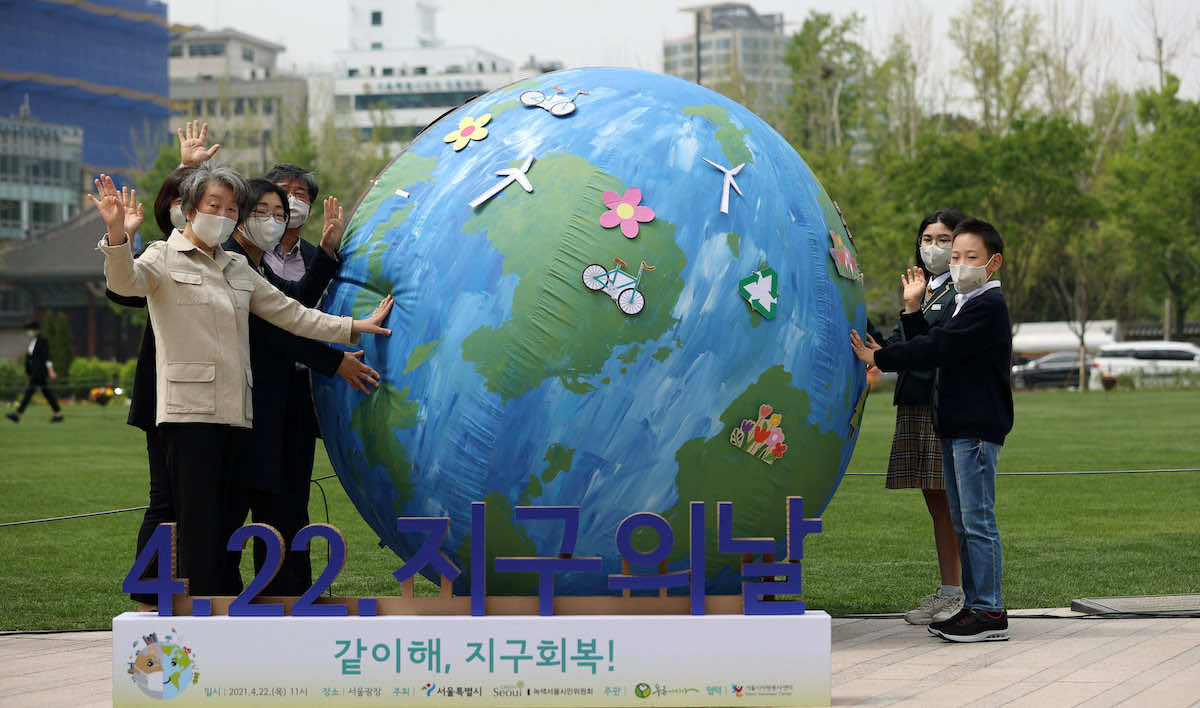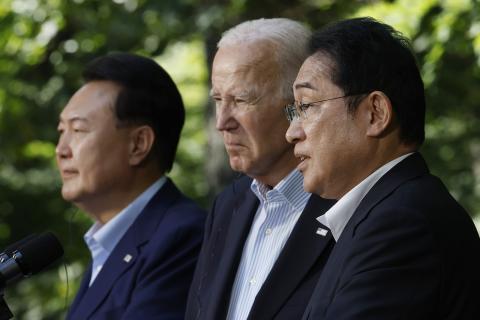Last year, South Korea’s President Moon Jae-in launched a climate-change policy branded as a “Green New Deal” as part of a wider stimulus package for the country’s pandemic-afflicted economy. This sat alongside a commitment to achieve a net-zero carbon emissions target by the year 2050, moves that reflected the increasing traction of environmental concerns in South Korean domestic politics and broader regional dynamics. While the setting of targets followed in the footsteps of China and Japan, the Green New Deal was largely lauded as a pioneering move in the region.
Anticipating investments of US$60 billion and the creation of more than 650,000 jobs, the plan aims to cut the country’s reliance on fossil fuels and lead South Korea to a post-Covid “green recovery”. While the country has not been beset by disasters such as Australia’s bushfires and floods, concerns such as pollution issues continue to make local headlines. It appeared telling that the Global Green Growth Institute, the treaty-based intergovernmental organisation which includes South Korea as a contributing member, recently launched an initiative titled the “Blue Skies and Net Zero 2050 Campaign” following the adoption of a South Korean–led resolution at the United Nations.
Whether this private sector push would continue under a shift to conservative politics remains an open question.
While many observers have expressed scepticism about the substance behind the Green New Deal and carbon-neutral target commitment, the prominence give to the announcements at the US-led Leaders Summit on Climate in April seemed to underscore the Moon administration’s seriousness. The summit was seen as an effort signal a return of the US to global climate negotiations after the fallow Trump years and to pressure other world leaders, especially allies, to step up commitments. Moon joined other leaders in announcing higher targets for emission reduction and further promised to stop funding overseas coal projects, which had been a criticism levelled at South Korea’s environmental stance.
South Korea is also pursuing its own diplomatic initiatives. While global attention has largely divided between the US climate summit and the forthcoming UN Climate Change Conference (COP26) in November, Seoul is preparing to host a “Partnering for Green Growth Summit”, or P4G Summit, on 30–31 May. The summit aims to complement the efforts of other international forums by providing a channel to forge partnerships between the public and private sectors to effectively meet Paris Agreement goals, and follows a 2018 meeting in Copenhagen, Denmark.

Given these policy trends, it is unsurprising to observe that South Korean conglomerates have sought to shift further towards green strategies for growth. Notable players such as LG Chem, Samsung Electronics and SK Group have announced various commitments to recycling and emissions-reduction targets and joined prominent global environmental networks, such as RE100. South Korea’s largest steelmaker, POSCO, has also made commitments to “green” the steel industry, with a focus on green hydrogen and carbon-capture technologies.
Whether this private sector push would continue under a shift to conservative politics remains an open question. Moon’s ruling Democratic Party has suffered a drop in popularity and in April was defeated in local mayoral elections. But even should there be political change at home, the increasing prominence of climate-change concerns in the region may cement the environmental agenda, with China’s activity prominent. The P4G summit hasn’t featured prominently in global media headlines, yet it will be an important marker to watch for clarification on South Korea’s public and private sectors’ enduring commitment to these climate policies.
With numerous additional events expected to take place prior to the two-day summit, it will also provide a valuable stage for the Moon administration to foster its climate leadership – with global and domestic audiences alike.

